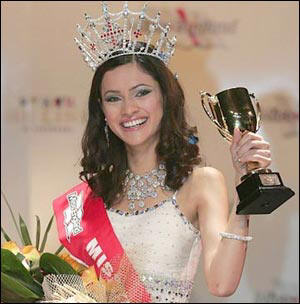 Miss is a title, typically used for an unmarried woman. It is a contraction of mistress, originating during the Victorian era. Its counterpart, Mrs., was used for married women.
Miss is a title, typically used for an unmarried woman. It is a contraction of mistress, originating during the Victorian era. Its counterpart, Mrs., was used for married women.
In some styles of etiquette, the eldest daughter of a family was addressed on paper or in introductions simply as Miss Doe, with the younger daughters being addressed as Miss Jane Rebecca Doe. In spoken address, the title is used with the last name.
In some regions such as the American South, Miss is also traditionally added to a woman's first name in direct or indirect address, as Miss Ilsa.
Usage
Miss can be used in direct address to a woman, for example, May I help you, miss? Some women consider this disrespectful and prefer ma'am. In the United Kingdom, Miss is often used to address female teachers without using their name, regardless of marital status.
Miss was formerly the default title for a businesswoman, but it has largely been replaced by Ms. in this context. It was (and to some extent remains) also a default title for celebrities, such as actresses. (The poet Dorothy Parker was often referred to as Miss Parker, even though Parker was the name of her first husband and she herself preferred Mrs. Parker.) Another notable use of Miss is as the title of a beauty queen, such as Miss America, Miss World, or Miss Congeniality.
Other languages, such as French, Spanish and Portuguese, have borrowed the English Miss to refer to the winner of a beauty pageant.
Foreign equivalents
Foreign equivalents of Miss are:
- Spanish Senorita (Srta.)
- French Mademoiselle (Mlle.)
- German Fräulein (Frl.)
- Italian Signorina (Sig.na)
- Portuguese Menina (Mna.) or Senhorita (Srta.)
- Dutch Mejuffrouw (Mej.)
- Swedish Fröken (Frk.)
- Norwegian Froken (Frk.)
- Danish Froken (Frk.)
- Finnish Neiti (Nti)
- Welsh Bonesig
- Irish Iníon
- Scots Gaelic A Mhaighdeann(-uasal) (Mh.)